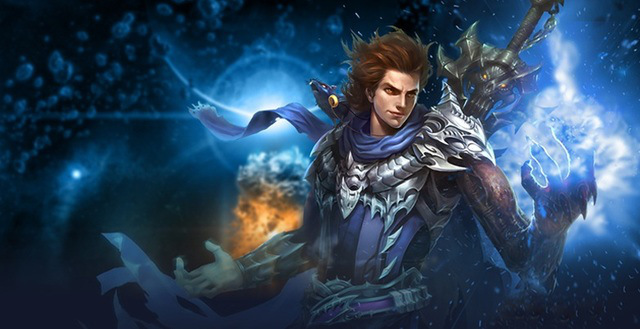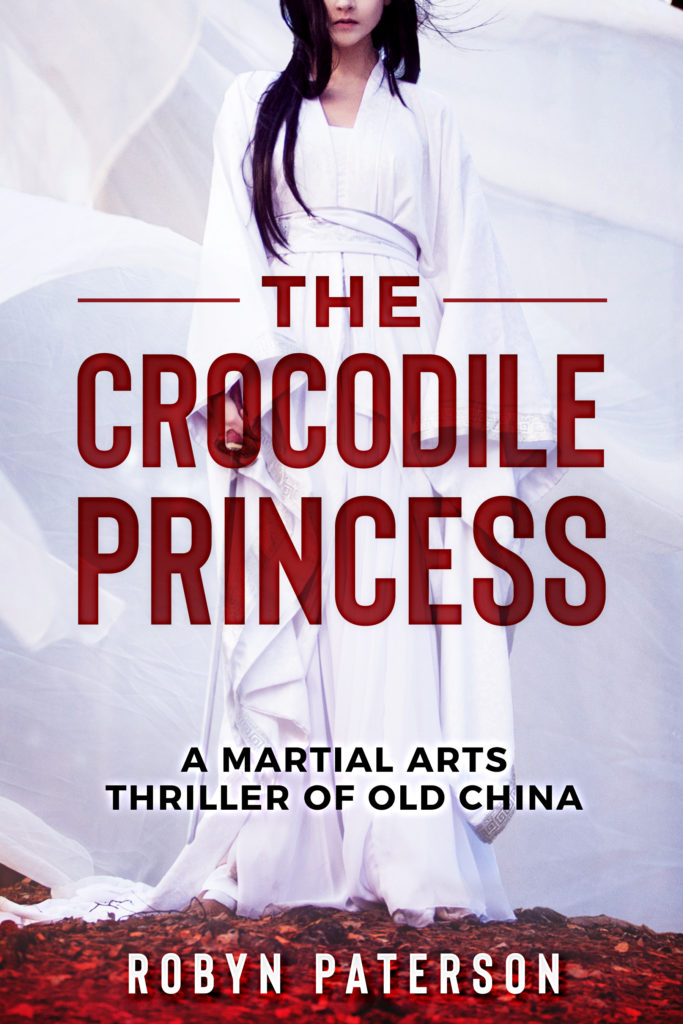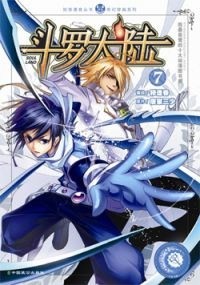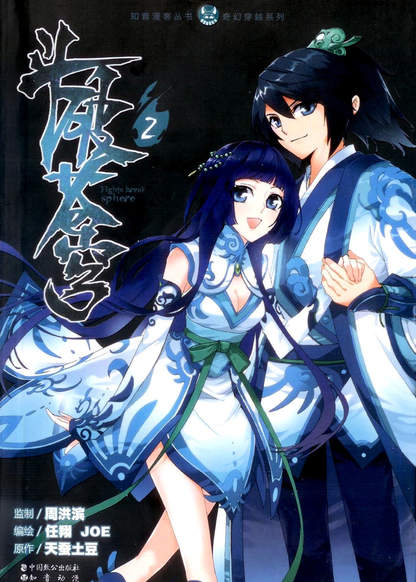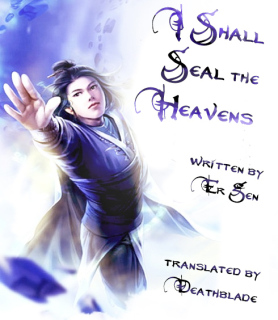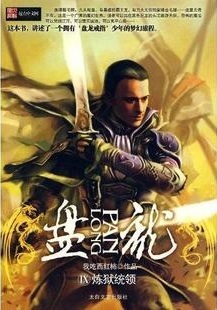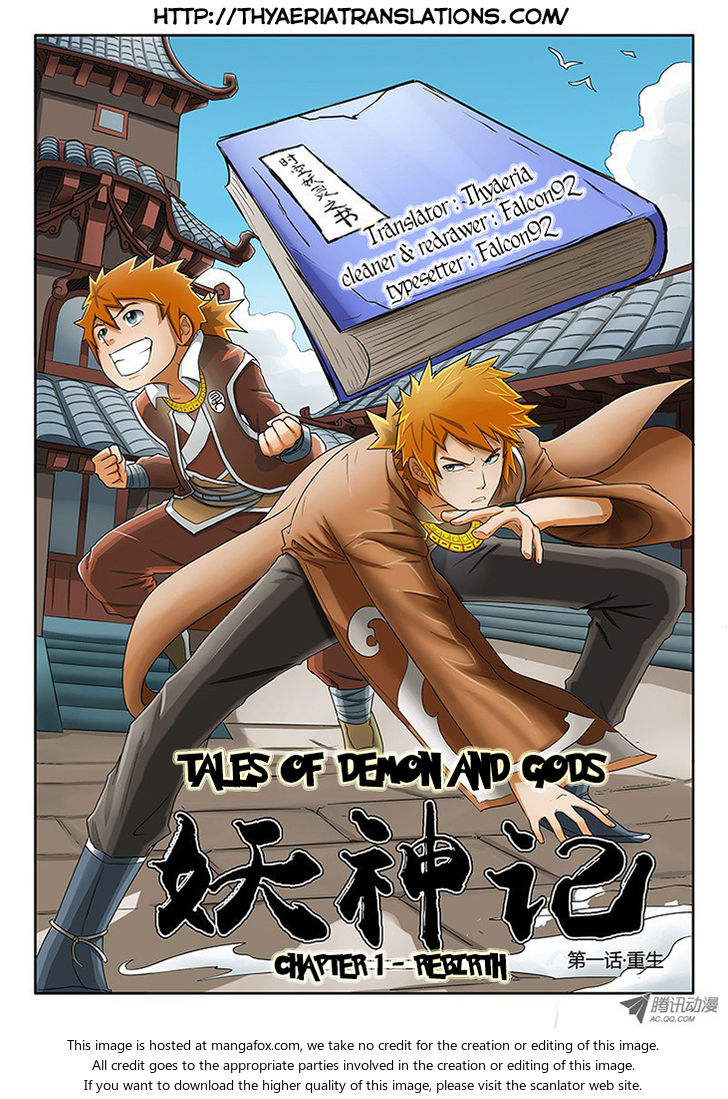A little over a year ago, I noticed a Chinese name, Douluo Daolu, on the “top 20 manga” of the site Mangafox.com, which I thought was unusual to say the least on a site dedicated to Japanese manga. The site does have Korean and Chinese comics, but to see a translated Chinese one reach a serious English readership (which required tens of thousands of reads a month) made me quite curious. So naturally, I did what I always do when I’m curious- I checked it out! As it turned out, Doulu Daolu was my first step into the world of Chinese fantasy web fiction, but I didn’t know it at the time.
As anyone who knows me, or is familiar with my work, knows I’m a longtime fan of Chinese Wuxia stories and movies. Wuxia, familiar to most English readers through movies such as Crouching Tiger, Hidden Dragon, is essentially the Chinese pulp historical action genre that holds the same place in the Chinese culture as Westerns do in the United States and Samurai films do in Japan. It flourished during the first half of the twentieth century in newspaper serials, and then eventually moved to the big and small screens in China, Hong Kong and Taiwan. Even today, elements of it pervade Chinese culture, and even “normal” historical Dramas have a habit of making use of stylized Wuxia-eqsue swordfighting once the action kicks in.
Now, despite Wuxia’s tendency toward “flying swordsmen”, you might be surprised to learn it is often a fairly “grounded” genre. “Standard” Wuxia stories will contain a bit of a jumping around, and maybe a few funky martial arts qi-based abilities, but tend to be light on what Westerners would call “magic” because they were still mostly focussed on the characters and their relationships with their martial arts sects and clans. Yes, there are often lost secret martial arts techniques, but these mostly just make people stronger and faster fighters, and rarely (in the literature) are about tossing around fireballs and summoning monsters.
I always found this groundedness somewhat appealing, that underneath their hyper-stylzed combat techniques, we were still watching skilled humans deal with inherently human problems for the most part. Likely, it also worked for me because this was the power level George Lucas used when he “borrowed” Wuxia tropes and made a little film series called Star Wars. I grew up dreaming of Jedi, so when I was shown Wuxia fighters who could do basically the same things Jedi are shown doing in the movies it didn’t really bother me.
This is also why, when I came across examples of what Chinese would call “Immortal” stories, which are stories about “gods” like Zu: Warriors from the Magic Mountain, I didn’t care for them. “Immortal” stories are basically super high-powered Wuxia stories about people who have transcended the mortal realm (or were never human to begin with) and their conflicts with the other “gods”. They spring mostly from Chinese mythology and of course the classic Journey to the West (aka The Monkey King) which in itself is basically an Immortal story about a couple gods hanging around with a priest on Earth and battling other gods and evil spirits.
I like my Wuxia “basic” level, and that’s it. If you want a good example of a Wuxia type of story, I can only humbly recommend my own novel The Crocodile Princess. A swashbuckling story of intrigue set in the martial arts underworld of Old China…
Or so I thought!
Because it seems the Chinese actually came up with a new genre that sits between the two- Xianxia, which is sometimes referred to as “Cultivation” novels. This currently super-popular genre is one of the pillars of Chinese Webnovel fiction (online serialized fiction on Chinese web portals) and while largely unknown in the English speaking world , has taken the Chinese one by storm. I posted previously about the top webnovel writers in China in 2015, and without an exception, all of them are Xianxia writers.
So, what is this mysterious Xianxia Genre?
For most of my English speaking readers, I can explain it in one hyphenated word- “leveling-up”. Taking its roots from Taoism and Buddhism, the characters in Xianxia novels (often generically referred to as Cultivators) are trying to “evolve” their souls into higher and purer forms and work their ways up to becoming immortals. However, while that might sound boring and make you think of a bunch of monks sitting around chanting and hoping to spiritually transcend this mortal coil (which is the reality version), in a Xianxia novel this has turned into an excuse to give the main characters magical superpowers they use to fight other Cultivators.
I often describe Xianxia novels as Wuxia meets World of Warcraft, which is essentially what they are. They’re stories where a generic nobody hero levels up by fighting, finding magic items, going on quests, and making friends and allies. And while that might sound dull, in the right hands, it is anything but! Since they’re written as Light Novel serials targeted at a Young Adult market, they tend to be action-driven stories filled with adventure, romance, humor, and more twists than a barrel of eels! They harken back to the days of Horatio Alger Jr. stories of a youth becoming a man, but with a uniquely Chinese spin on them.
Having read a few of them, here are a few common “tropes” or standards that seem to pop up over and over in the majority of Xianxia stories I’ve checked out:
- It takes place in a pseudo-historical Fantasy world often based on old China.
- The main character (MC) is (almost) always a weak young man of low birth.
- Despite being of low birth, the MC has some weird advantage over others in becoming a Cultivator which kicks in around the time the story starts. (Common ones are they are reincarnated from another time and place, they have been transported to a fantasy world from our world, they have some unique skills from a strange background, or they have some magic item that activates around the time the story starts.)
- There is a system of rankings which all Cultivated beings in the setting will follow. (This usually involves a combination of Numbers and something else. So the character might be a “Bronze Rank 3 Fighter” or be working up from “Level One White Mage” to “Level 99 Black Mage”, with the colors designating approximate level of spiritual development.)
- All cultivated beings have some pool of Qi Points (Magic Points) which they use to enhance their physical abilities and cast magical spells. (Often this is called a “Soul Realm” or “Spiritual Energy”.)
- Magic and magic items are plentiful in the setting, but are pretty much only used for fighting, healing and levelling up. (Other uses of magic aren’t even on the radar- it’s all battle, all the time.)
- The setting will be filled with wandering monsters of varying rank (which corresponds to the Ranks of character development as well) and these monsters will produce gemstones when killed that can be used in various ways. (Commonly, to be absorbed by the MC to help further their Leveling.)
- Often the MC will get one of these monsters as a pet early in the story, which will be his companion and level up with him.
- The main character usually has a mentor, but the mentor will be pretty unreliable and tend to disappear for long periods of time. (Only showed up to help the MC get over critical challenges and occasionally as a Deux ex Machina.)
- There are clans/sects/guilds that the character will have to become involved with to get the things they need to level up, but by allying with one group, you gain the enmity of their enemies. (Thus perpetual conflict.)
- Each of the above groups has their own power levels in their society, and there are always top ones which dislike the main character for some reason. (Thus being the high-powered opposition that the MC will need to face toward the end of the story and often they hunt the MC at some point.)
- There are a handful of “Immortals” who have reached top rank in the setting, and the world tends to revolve around them. Some are friendly toward our hero, some will want him dead. The baddest of these will be the “final boss” the hero will need to face to finish his quest.
- There was once a great lost civilization in the setting who littered the setting with lost tombs and hidden places filled with cool magical items and books.
- There will be some variant of a Magic Satchel (usually a bag or ring) which is easy to carry but which allows the MC to store massive amounts of stuff they find with almost no weight.
- There will be “healing pills” which restore health, and “power-up pills” which help in the character’s levelling. (Sometimes the latter are the gems that monsters leave behind when killed.)
- The character will gain some bizarre magical superpowers during their journey that seem weak at first, but level up into something massive over time.
- There is a main female love interest character, but something always keeps them apart. (Usually she is the daughter of one of the clan/sect/guild heads, and will be described as “a fairy” or as the most beautiful woman in the world.)
- In the meantime, the MC will be pursued by a host of other young hotties who will tempt him and keep the drama flowing and try to seduce him at various points in the story.
- The female lead will have some ability that enhances or is complimentary to the male lead.
- Every young man wants to be a warrior/fighter- it’s their dream to fight for their clans.
- Many Xiaxia stories have a “survival of the fittest/strongest” theme to them.
There are other standards, but these tend to be the big ones and the most common ones. Reading that list, you can see what I mean about the similarities between Xianxia stories and MMO’s like WoW. The only thing that makes them different from typical Tolkien-esque settings are the Wuxia twists that tend to be injected into them, and elements of Chinese culture. Also, each author will put his own spin on a number of these elements, and sometimes do some interesting twists on them. (Which will then result in others copying that twist, and innovating it in other directions, keeping the genre evolving.)
Let’s look at a few examples that I’ve enjoyed or checked out:
(Note, many of the more popular ones started as serial Webnovels and have also had comic adaptations, and I will provide links to both when possible.)
Douluo Daolu (aka Battle Continent), which is the story of a martial arts genius from a Wuxia version of our Tang Dynasty named Tang San who commits suicide and finds himself reborn as a young boy in a high-fantasy Xianxia setting. He uses his Wuxia knowledge to give him an edge when he goes to a magic school (ala Hogwarts), where he forms a team of students and helps them all to level up. This one tends to be somewhat lighthearted and a bit silly at times (he goes to the “Shrek Academy”, which is run by “Principal Flanders”) but the core story is interesting. Most Xianxia stories are very individualistic, but this one is a little more team based. It was the first one I read (in comic form), and is actually one of the most popular Xianxia novels. (Comic adaptation here)
Doupo Cangqiong (aka Battle Through the Heavens) is the story of Xiao Yan the young martial arts genius of the Xiao clan. However, shortly after his mother’s death Xiao Yan’s spiritual energy all disappeared and he came the laughing stock of his clan. At the start of the story he discovers that it was because the ring his mother gave him on her deathbed contains the trapped spirit of an ancient immortal ranked alchemist with no name. The alchemist’s spirit was sucking away Xiao Yan’s energy to reform himself as a ghost, and once he has reformed, Xiao Yan regains the use of his spiritual energy. Xiao Yan and the alchemist make a deal- the alchemist will become Xiao Yan’s mentor and teach him, and in trade when Xie Ni gets strong enough he will help the alchemist reform a new body in the physical world. This is good, because Xiao Yan just made a pact with his ex-Fiancée that he will fight a duel to the death with her in three years for his clan’s honor. Again, I read this one in comic form, but I have to say it’s one of my favorites, and I still read each new chapter as soon as I can each week. The alchemy angle adds a surprising amount to the story, and the author never ceases to crank the tension or have interesting twists- so highly recommended! The comic also has nice art, and while more serious than Battle Continent, it still has a good blend of seriousness and humour. (Comic here. Note- the comic translation is way ahead of the novel translation, although both are ongoing.)
I Shall Seal the Heavens is one of the most popular Xianxia serials by the master Xianxia author Er Gen (aka I Eat Tomatoes), and is the story of Meng Hao. A failed young scholar, he gets kidnapped by an Immortal (7th Rank Chi Cultivator Sister Xu) and taken to a mountain retreat to become a servant in the Reliance Sect. Through hard work, he goes from servant to an actual member of the sect (Level 0 to Level 1) and becomes one of the hundreds of students who all strive to improve their rank and get martial arts superpowers. However, once he becomes a student he discovers that the sect functions in a dog-eat-dog sort of system, where the strong prey on the weak, and the weak all too often end up dead. As you might guess, this one is much darker than the previous two, and I’m still deciding if I actually like it. (My tastes are for more swashbuckling material.) Try to give it until Chapter 6 before you make a real decision about it, if for no other reason than to find out what the MC’s magic item can actually do. (It has, perhaps, one of the most unique powers in all of fantasy- which will have you laughing like crazy, or staring at the screen in horror, or perhaps both.)
Coiling Dragon (aka Panlong) was one of the first Xianxia stories translated into English by the webmaster of Wuxiaworld, Ren Wo Xing. It is also special in that it takes place in what is a basically western fantasy setting instead of a Chinese one. Linley Baruch, one of the last members of the once-mighty Baruch clan, discovers that he is the inheritor of a great legacy- he has “dragon blood” running through his veins, but it only gives him potential, he has a long journey to make it reality. If you’re looking for an intro to Xianxia novels, and aren’t sure if you can handle all those Chinese names, then this is probably the one for you. It starts a little slow, but is well written, and picks up as it goes. When people go on the Wuxiaworld.com forums and ask where to start among the many series, this is a name that pops up almost every time (along with I Shall Seal the Heavens) and it has the other advantage of being 100% finished in both English and Chinese.
Tales of Demons and Gods is a series that I both highly recommend reading, and suggest you do not read as your first Xianxia story. Go read something else, maybe two or three something else’s first, and then come to this one. The reason is say this is because this story turns many of the standard Xianxia tropes on their heads, and a lot of the humor of the story comes from the fact the author is both deconstructing the genre and yet writing a perfect example of it at the same time. That said, I love this story, despite all its weirdness and faults, because it never fails to thrill and entertain. The core story is also a bit of genius- Nie Li is a man who watched his city destroyed by a demon army and everyone he ever loved die, he then went on to become one of the greatest warriors of humanity and lived for hundreds of years until he lost a battle with the Dark Sage and was killed. However, after his death, he wakes up during class in the body of his 13 year old self three years before the demon army comes to destroy the city. He has his knowledge from his previous existence, but is stuck in the helpless body of his young self, and now he has three years to save his city. Of course, every change he makes to the timeline makes the new timeline different than the old one, and spawns even new dangers that he didn’t know existed the first time around. (Last time he was a typical teenage commoner from a minor family with no connection to the political or warrior side of the city.) Nie Li is the smartest and most manipulative older-self-in-kid-body bastard since Edogawa Conan, and I can’t wait to read each new chapter. Another plus is that the comic version and text version are in sync with each other on a chapter-by-chapter basis, so you can read the comic first if you want, and then flip over to the text version (which is about 150 chapters ahead) with no issues at all. (Comic here.)
Of course, these are just a few of the Xianxia webnovels being translated right now by sites like the ones listed below, and are just my own entry points. You should probably check those sites out for more information and find something that works best for you. Wuxiaworld also has very active forums, which can answer any questions you have.
Novel Updates (Xianxia Category)
Dreams of Jianghu: Novel Translations
Jade Water Paradise: Romances, Wuxia and Xianxia Fiction
[EDIT: Since this article was written, I’ve discovered that my terminology wasn’t quite right, and that I mixed more than one category of Chinese fantasy fiction together when I wrote this article. While some of these stories are Xianxia, and I did get a lot of the common elements correct, there is some debate over what is “real” Xianxia and what is really just high magic Wuxia, or another (sub) genre altogether. For more on this topic, refer to this other post about Chinese Webnovel Genres.]
Enjoy!
Rob
